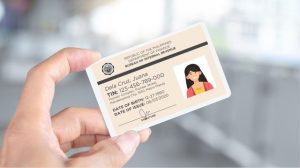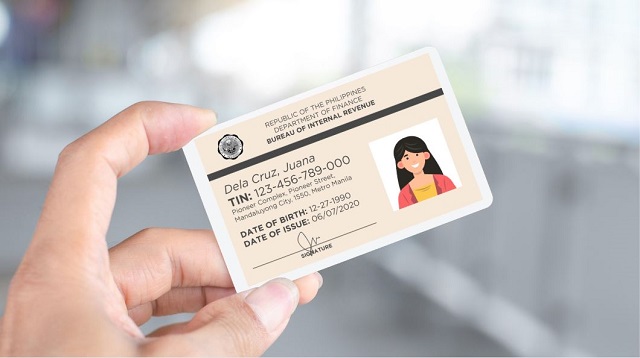How to Get a TIN ID 2023

TIN is the abbreviation form of Taxpayer Identification Number. It is a unique set of numbers assigned to each registered taxpayer in the Philippines. It is very vital when you transact with the Bureau of Internal Revenue (BIR). This is the reason why you should apply for it as soon as you enter the workforce.
What is a Taxpayer Identification Number (TIN)?
A Taxpayer Identification Number (TIN) is a unique system-generated number. The Bureau of Internal Revenue (BIR) assigns this to every person registered. It is a permanent number and an individual should only have one TIN ID in a lifetime. If you already have a one, you should not get a new one even if you have changed jobs.
Tax Identification Number Format and Structure?
It consists of nine to 12 digits. The first nine being the TIN ID proper and the last three being the branch code (for corporate taxpayers). For individual taxpayers, the default value is 000 for the last three digits of their Tax Identification Number.
The first digit of the Taxpayer Identification Number identifies the taxpayer type. TINs that start with 1 to 9 belong to individual taxpayers. If it begins with zero (0), it’s owned by a corporation. The first three digits says its issuance date. Those that start with the 000 series (for corporations) and 900 series (for individuals).
Issued before the Integrated Tax System (ITS) implementation in 1998. Meanwhile, the BIR issued TINs that begin with the 200 and 400 series under the ITS. Taxpayers who registered online have TINs starting with the 300 series.
Who Should Get a Taxpayer Identification Number?
All Filipino and foreign citizens who pay taxes in the Philippines. They must first register with the BIR to secure a TIN. But before applying, you must know the correct type of taxpayer you should register for. Taxpayers are generally classified into two groups: individual and non-individual/corporate. Below are the types of taxpayers under each classification.
1. Individual taxpayers
a. Local employees
In BIR tax forms, local employees are “Individuals Earning Purely Compensation Income.” The term refers to Filipinos who earn income through a salary from an employer. They must based in the Philippines. Fresh graduates who need to get a TIN as a pre-employment need also belong to this taxpayer type.
b. Self-employed individuals
The BIR defines self-employed as “individuals engaged in a trade or business or those in the practice of a profession.” These are self-earning people who work for themselves instead of employers. The following persons fall under the self-employed taxpayer type: · Single proprietors
Entrepreneurs who generate income from their business. That’s registered as a sole proprietorship with the Department of Trade and Industry (DTI) · Professionals
– Individuals who earn income from practicing their profession. This includes freelancers, lawyers, and those with a (PRC) license. , s · Artists, entertainers, and athletes
People who pursue arts or sports and make a living from them. This includes actors, singers, dancers, theater performers, movie directors, writers, coaches, etc.
c. Mixed-income earners
As the term implies, mixed-income earners earn income from various sources. This can be from business, profession, or employment. BIR defines these taxpayers as any two or all of the following:
local employees, single proprietors, and professionals.
Example:
You’re a mixed-income individual if you’re currently working full-time for an employer. Then while doing this, you also have a sideline.
Here’s another example from the BIR:
A teacher employed in a school who works as a part-time tutor and runs a retail business. BIR requires mixed-income earners to register as local employees, professionals, and single proprietors.
d. Foreigners
All foreign nationals who intend to work or start a business in the Philippines. They must register with the BIR, get a Tax Identification Number, and pay and file taxes.
Classification of alien or foreign taxpayers in the Philippines for taxation purposes:
- Resident aliens – non-Filipino citizens with permanent residency status in the Philippines ·
- Nonresident aliens – non-Filipino citizens who are not Philippine residents. They have stayed in the country for over 180 days during any calendar year. This includes expats and foreign entrepreneurs
e. One-time taxpayers
You should secure a TIN ID and register as a one-time taxpayer if you’ve never has a one before. Yet, you have to pay any of these taxes under One-Time Transactions (ONETT):
- Capital gains tax – For those selling real properties or shares of stocks for a profit ·
- Donor’s tax – For those giving gifts and/or donations worth over Php 250,000 ·
- Estate tax – For legal heirs/beneficiaries of a deceased person ·
- Final tax on winnings – For winners of lotto, sweepstakes, or any prize exceeding Php 10,000
- Motor vehicle user’s charge – For those registering their car with the Land Transportation Office (LTO)
f. Non-taxpayers/Persons registering under EO 98
Minors, students, housewives, retirees, and other unemployed people, as well as OFWs. They still need to apply for a TIN, even if they’re exempted from paying the income tax. Under EO 98, all government agencies and LGUs must include TIN in all forms. This includes licenses, permits, clearances, and other official documents. Having a TIN enables non-taxpayers in the Philippines to transact with government offices. Even banks stock brokerage firms, and other entities that need a Tax Identification Number.
g. Estates and trusts
The BIR requires and issues a TIN for the estate of a deceased person. The TIN for an estate or trust differs from the deceased person’s or trustee’s TIN. In legal terms, an estate consists of real properties, cash, investments, and insurance. This makes up a person’s net worth. These assets have tax upon the owner’s death. This is before transferring to the name of the deceased’s legal heirs. A trust is a legal arrangement in which a trust or gives a trustee the right to hold his/her assets. This is needed for a third party, such as a beneficiary.
2. Corporate taxpayers
The BIR requires the following types of entities to register as corporate taxpayers: · Domestic corporations
Philippine-based corporations have tax on their income. Regardless if it is from sources within and outside the country. ·
Foreign corporations
Resident and non-resident foreign corporations have tax on their income. This is from sources within the Philippines only. This is whether they operate their business in the country or not. · Partnerships · Cooperatives · Non-stock, non-profit organizations · Associations (such as homeowners associations and labor unions) – Whether taxable or non-taxable · National government agencies · Government-owned and controlled corporations (GOCCs) · LGUs
Benefits of a Taxpayer Identification Number
- TIN gives the BIR a quick way to access, track, and process a taxpayer’s information and transactions. This is of course with the national tax collection agency.
- It works like a bank account number. It allows the bank to identify the right account to debit or credit a financial transaction. The same goes for the TIN—it’s what the BIR uses to record a tax return filed by a taxpayer.
- The TIN is not only for BIR transactions like tax filing and payment. As proof of being a taxpayer, your TIN is important. This is when transacting with different government offices, banks, and private offices. Here are some transactions or instances when you’re required to provide your TIN: ·
- Opening a savings account, checking account, or any bank account ·
- Credit card or loan application ·
- Application for voter registration with the Comelec ·
- Completing pre-employment requirements (for new hired employees) ·
- Vehicle registration with the LTO ·
- Buying a vehicle, land, house, or condo in the Philippines ·
- Obtaining work visas and employment permits. This is for foreigners who intend to work in the Philippines.
How to Get a TIN ID Number in the Philippines?
There are two ways.
- Through walk-in registration at their assigned revenue district office (RDO) or
- Online registration via the BIR eRegistration website.
Processing the TIN ID of walk-in applicants takes around 30 minutes to an hour. But it could take much longer, depending on the volume of people transacting during the day.
The online registration process is much shorter, at less than 5 minutes. Yet, the BIR’s online service is available only to registered employers. This is when they are securing TINs for their employees. Most taxpayer types have to register using appropriate BIR tax forms in person.
How to Get a TIN Using BIR Tax Forms (Walk-in Registration)

a. TIN ID Application Using BIR Form 1901 (For Self-Employed, Mixed-Income Individuals, Non-Resident Alien Engaged in Trade/Business, Estate, and Trust)
The BIR Form 1901 for self-employed individuals. Whether single proprietors or professionals, to register with BIR as taxpayers.
Mixed-income individuals or employees running a business used the same form.
b. TIN ID Application Using BIR Form 1902 (For Local and Alien Employees Earning Purely Compensation Income).
The BIR Form 1902 is the tax form used to register new employees (Filipino or foreigner). These people will earn from their salary/compensation income in the Philippines.
Most employers take care of their employees’ BIR registration. If this is the case, all you need to do is to fill out the form and submit the required documents. Once registered, you’ll have your permanent TIN ID.
c. TIN Application Using BIR Form 1903 (For Corporations, Partnerships, Including GAIs, LGUs, Cooperatives, and Associations).
If you’re a corporate taxpayer, you can register with BIR and get your TIN using the BIR Form 1903. This tax form caters to:
corporations, partnerships, non-profit organizations, cooperatives, associations, national government agencies, GOCCs, and LGUs.
d. TIN Application Using BIR Form 1904 (For One-Time Taxpayer and Person Registering Under E.O. 98).
The BIR Form 1904 is for those who don’t fall under the regular groups of taxpayers. These include one-time taxpayers who were not issued a TIN ID before but need one to pay:
donor’s tax, estate tax, capital gains tax, and other types of one-time taxes.
This tax form is also used to register applicants who are not paying income taxes but are under E.O. 98. This includes unemployed Filipinos, OFWs, and others. These applicants want to get their TIN ID to transact with any government office.
How to Get a TIN Using the BIR eReg Website (Online Registration)
Employers or corporate taxpayers registered with the BIR can use the BIR’s (eReg) system. This is when they want to secure the TIN ID of their new employees (without existing TIN).
Again, employers can issue TIN ID for their employees through the BIR eReg system. Yet, they must create an account in the online system first
Part I: How to Create a BIR eReg Account
Here are the steps to create a BIR eReg system account:
- Visit the BIR eRegistration website.
- Click on Create Employer User Account on the User Menu on the left part of the page.
- Read the User Agreement. Click the Agree button.
- Enter your email address, complete name, employer TIN ID, and employer branch code (the last three digits of your employer TIN—not the RDO code). See the image above for more information.
- Type the captcha code and click Submit. Upon clicking the Submit button, you will be directed to the eReg Login page. There you can see a message confirming that your account has been created.
- Wait for an email notification from BIR containing your account username. Once you have received your username, you can now get TIN ID for your employees (see next section).
Part II: How to Get Taxpayer Identification Number for Employees Through the BIR eReg System
After setting up their BIR eReg accounts, employers can now log in to issue Taxpayer Identification Numbers (TIN ID) for their employees.
- Visit the BIR eRegistration website.
- Input your registered username (i.e., the one sent to you via email) and your email address. If the username and email address match, you will receive an email containing your password. Check your spam folder if you cannot see the email in your inbox.
- Fill out the Basic Taxpayer Data Form with the required information, which includes:
name of the employee, birthdate, name extension, email address, civil status, and gender
Note:
Taxpayers with no middle name must get their TINs at the concerned Revenue District Office (RDO)
Frequently Asked Questions (FAQs)
- Can I get a Taxpayer Identification Number if I am unemployed?
Yes, you read that right—you can secure a Tax Identification Number even if you’re not employed.
There shouldn’t be a problem in doing so. as long as you have no existing TIN ID, have a valid purpose, and submit all the requirements. EO 98 makes it compulsory for everyone.
If you have a it, you can transact with government offices and private institutions. You can use it to get the following:
- Passport/NBI Clearance/Driver’s License application
- Opening a bank account
- Voter’s registration application
- Scholarship application
As such, having a Tax Identification Number enables you to get a valid ID, open a bank account for saving or investing, get a scholarship, and more.
How to apply for a Tax Identification Number if you’re unemployed: 4 steps
- Prepare the BIR requirements for Tax Identification Number registration
- Step ahead of your Tax Identification Number application by ensuring you’ve gathered all the necessary documents.
TIN ID application requirements for the unemployed.
- Two copies of accomplished BIR Form 1904
- Birth Certificate, Community Tax Certificate (cedula), passport, driver’s license, or any valid government-issued ID showing the applicant’s full name, address, and birthdate
- For married applicants: Marriage certificate
Notes and Tips
1. Don’t register for many Taxpayer Identification Number
You only need one Tax Identification Number for a lifetime. There is no need to get another if you change your job or start a business. Instead, you can only update your status.
2. If your business is a corporation or a partnership, dissolving the business means canceling the Tax Identification Number.
3. If a taxpayer cancels his registration due to the closure of his/her business, BIR will investigate it.






